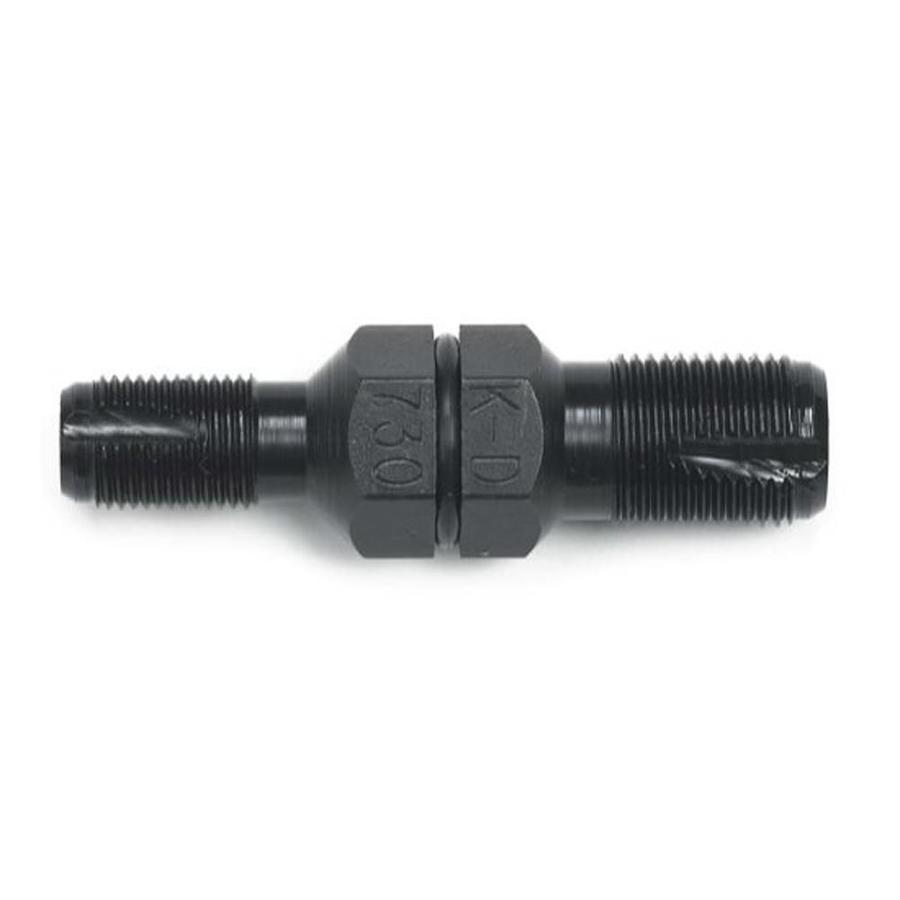when you replace spark plugs in your E, do you add anti seize on the threads? If so what kind of anti-seize do you use?
I ALWAYS use anti-seize, on ALL spark plugs, irrespective of head material.
Any good name brand is fine.
Always, and I also use a thread chaser to clean the old gunk out of the threads before putting new ones in.
thanks Erica----------not sure I know what a thread chaser is—but I’ll look it up
Available at any good FLAPS!
When using, slather it with gun grease, screw it in by hand: the grease captures aforementioned schmutz, and hand-installing prevents cross-threading.
do you know the thread size for the plug and chaser?
14mm… all are the same pitch.
Use an old spark plug and file a slot along the thread area to make a cutting edge
to clean the dirt from the thread.
WalterI do as noted above plus I always use a torque wrench to tighten the plugs (yeah I know that new plugs usually have a crush washer but that is a one-time thing).
My concern is not that they get tight enough but rather that I avoid over-tightening.
I always use the Permatex silver coloured anti-seize for plugs aluminum heads, never the copper based type. Copper and aluminum don’t like each other.
Is that a concern without a catalyst? Normally it would be water or water vapor. We have copper washers all over and they don’t seem to cause excess corrosion. The copper in anti seize is suspended in grease which I’d hope would prevent corrosion. Although the nickel product would work just well so no reason not to use it…
The problem we have with spark plugs in aluminium heads is not over torquing, but repeated torquing. Aluminium becomes hard and brittle when “worked”, it becomes crystalline and less mailable the more we fit, remove and refit any threaded and torqued fixture. This is one of the main causes of stripped threads in older cylinder heads. Over torquing will also do it, but in a shorter time scale.
Cutting out the old crystallised thread when fitting a Helicoil (other brands are available) cures the problem, for the next 50 or 60 years.
I’ve always used copper based and never had a problem. I would be very hesitant to install plugs into a dry aluminum head.
Ditto: never seen an adverse reaction, to using copper-containing anti-seize.
First, I DO use anti-seize on spark plugs. But some manufactures say not too, as their plugs are plated to prevent seizing and they say the anti-seize may insulate the plug electrically. Personally, I do not believe the insulation factor, but I thought I would pass on the information.
Tom
I was told that was the reason to use copper anti seize on the plugs. I don’t use a torque wrench, just tighten them by feel and have never had a problem.
If one googles use of anti seize on spark plugs you find no consistent answer.
CHAMPION SPARK PLUG ANTI-SEIZE 2612. Recommended/made by Champion, FAA approved for use on all aircraft spark plugs. Runs about $12 for a 4 oz. bottle.
Dick
True, but the variation is often because of materials, manufacturers, etc. Which is why, if one desires to be correct, one should follow the procedure for that particular engine/manufacturer/spark plug. So I attempt to follow as I just said, but when in doubt, or no specific information, I default to using anti-seize.
Tom
As do I. …
I’ve never used anti-seize with cast iron cylinder blocks and never had a problem. I always use it when threading steel into aluminum.
